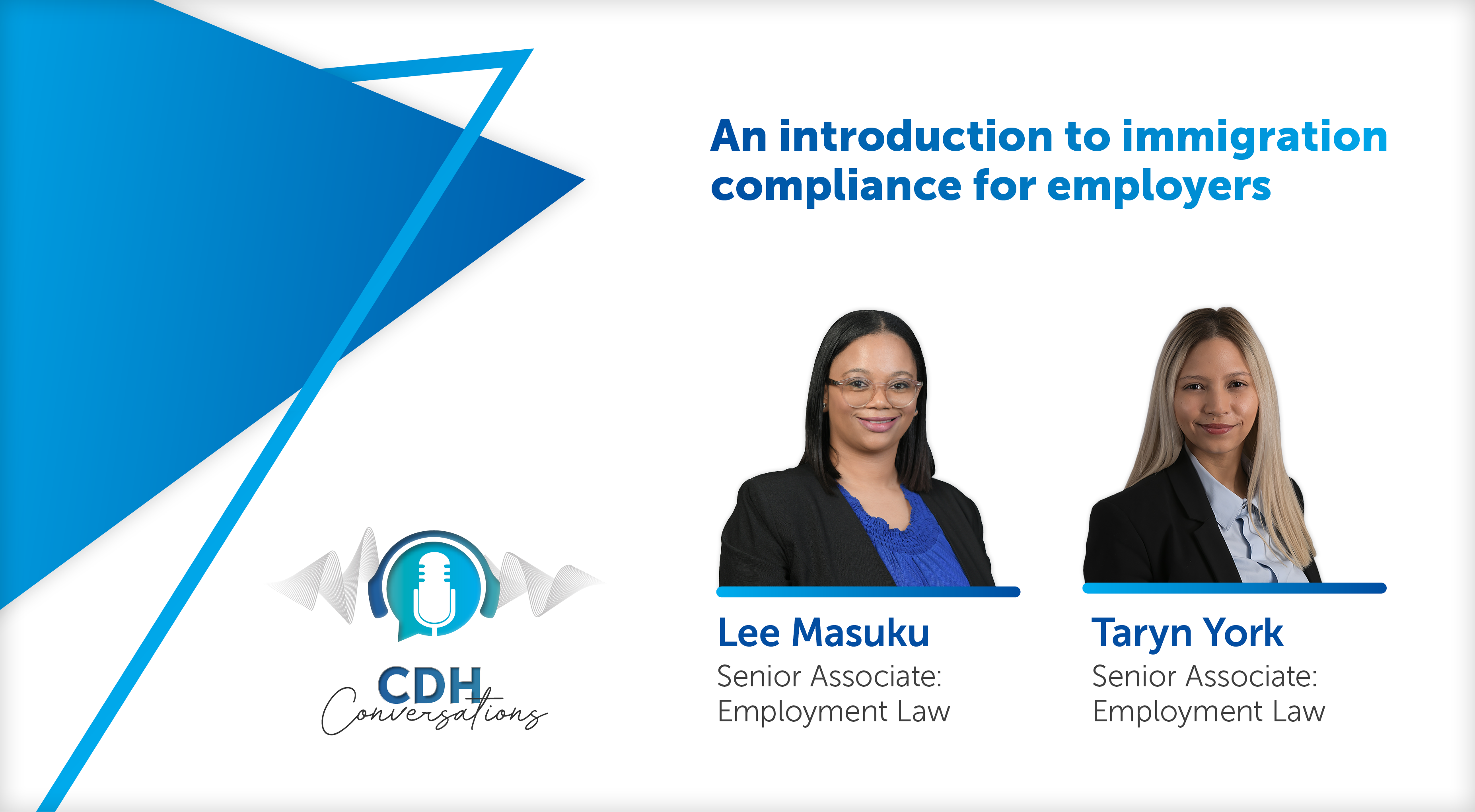Understatement penalties: A reiteration of fundamental principles
At a glance
- The Tax Court had to determine whether SARS could impose understatement penalties on LDC Taxpayer and, if so, the extent of those penalties.
- The dispute arose from the Taxpayer's failure to declare a capital gain in its 2017 tax return, which it believed would only arise when the property was transferred to end users.
- The court held that there was an understatement and imposed an understatement penalty of 25%, although it acknowledged that SARS had erred in categorizing the penalty and should have imposed a penalty of 50%. However, the court could not increase the penalty because SARS did not raise the issue in its grounds of assessment.
Facts
During the 2017 year of assessment, the Taxpayer close corporation concluded a written sale agreement in terms of which it sold an immovable property for R25.2 million (including VAT). The property comprised of a piece of land with development rights allowing for the subdivision of the property into 72 erven and it was a term of the agreement that the purchase price would be payable to the Taxpayer in tranches on the transfer of each erf to the end user.
On this basis, the sale agreement was entered into, and the transfer of the property was effected, in the Taxpayer’s 2017 year of assessment. While the Taxpayer accounted for the sale of the property from a VAT perspective in the relevant period, it did not declare the capital gain that arose from the sale of the property in its 2017 tax return as it was of the view that the capital gain would only accrue on the transfer of the individual erven to the third-party end users. As such, the capital gains tax due to SARS as a consequence of the sale was paid by the Taxpayer during the subsequent years of assessment when the erven were on sold.
After an internal audit was conducted by SARS (which was instituted as a result of the inconsistencies between the Taxpayer’s VAT return and its income tax return) SARS issued an additional assessment, which included the tax on the relevant capital gain and imposed an understatement penalty (USP) of 25%. The USP was imposed in terms of section 222 and 223 of the Tax Administration Act 28 of 2011 (TAA) on the basis of “reasonable care not taken in completing a return”.
Judgment
As the dispute regarding the capital gain had been previously resolved between the parties, the Tax Court appeal instituted by the Taxpayer pertained only to the USP and the Tax Court was required to determine:
- whether there was an understatement (in the form of an omission in a tax return) which caused prejudice to SARS or the fiscus; and
- if so, whether the understatement arose from a behaviour on the part of the Taxpayer that may appropriately be described as “reasonable care not taken in completing a return”.
While the Taxpayer conceded that its failure to disclose or declare the capital gain in its 2017 tax return constituted “an omission” as contemplated in section 221 of the TAA, it contended that no prejudice had been suffered by SARS or the fiscus as a result of the omission. This was due to the fact that all of the tax that had been due to SARS had ultimately been paid by the Taxpayer, albeit in years of assessment other than the year in which the gain originally arose.
The court reiterated that the prejudice suffered by SARS or the fiscus (as contemplated in the TAA) need not necessarily be financial prejudice and disagreed with the Taxpayer’s contention that no prejudice had been suffered. This finding was made on the basis that, firstly, the capital gains issue in dispute was complex and the auditor who identified the risk had spent a considerable amount of time considering the matter and verifying the risk. As such, SARS had expended significant time and human capital resources on the matter, which could have been utilised elsewhere had the Taxpayer not failed to declare the capital gain.
Secondly, despite the full tax liability having been settled by the Taxpayer in subsequent years of assessment (and the issue largely being one of timing), SARS is mandated with collecting targeted amounts of taxes annually. Where the taxes due in a particular year are not recovered in that year, the delay affects SARS’ ability to collect revenue as mandated and this ultimately affects the government’s ability to fulfil its constitutional obligations to its citizens.
As there had been an omission by the Taxpayer that had caused prejudice to SARS or the fiscus, the court held that there had been an understatement by the Taxpayer in its 2017 tax return, which entitled SARS to impose a USP.
In deciding whether SARS had correctly categorised the understatement as being the result of “reasonable care not taken in completing a return”, the court had regard to the testimony of SARS’ auditor who had stated that, in hindsight, SARS had incorrectly categorised the understatement penalty. It was indicated by the auditor that the penalty should rather have been based on “no reasonable grounds for ‘tax position’ taken” (which would have attracted a penalty of 50%). To this end, the court accepted that SARS had erred in imposing a USP of 25% rather than 50%.
The court was then confronted with an additional issue of whether or not it was entitled to increase the USP from 25% to 50% and give effect to the correct classification of the understatement.
In coming to its decision, the court considered s129(3) of the TAA, which states that, in the case of an appeal against an understatement penalty imposed by SARS under a tax act, the Tax Court may reduce, confirm or increase the understatement penalty imposed.
Regard was also had to the judgment of the Supreme Court of Appeal in the case of Purlish Holdings (Proprietary) Limited v CSARS, in which it was held that the Tax Court may only reduce or increase a USP if such increase (or reduction) has been properly raised for adjudication before the court.
As SARS had not raised the matter of an increase of the USP in its statement of grounds of assessment, the Tax Court found that it was not competent to increase the 25% USP to 50%. The court did, however, conclude that its inability to increase the USP in this instance did not allow the Taxpayer to escape liability for the USP that SARS imposed. As such, the Taxpayer’s appeal was dismissed and the Taxpayer was ordered to pay the USP of 25%.
Comment
This judgment serves as another reminder of the importance of detailing all of the issues that are to be adjudicated before the Tax Court in either SARS’ statement of grounds of assessment, or the taxpayer’s statement of grounds of appeal. The failure to do so may have a significant impact on the issues to be decided by the Tax Court.
It is worth noting that the rules promulgated in terms of section 103 of the TAA make provision for the amendment of the aforementioned statements either by agreement between SARS and the taxpayer or, in the absence of such agreement, by means of an application to the Tax Court to amend the relevant statement.
The information and material published on this website is provided for general purposes only and does not constitute legal advice. We make every effort to ensure that the content is updated regularly and to offer the most current and accurate information. Please consult one of our lawyers on any specific legal problem or matter. We accept no responsibility for any loss or damage, whether direct or consequential, which may arise from reliance on the information contained in these pages. Please refer to our full terms and conditions. Copyright © 2026 Cliffe Dekker Hofmeyr. All rights reserved. For permission to reproduce an article or publication, please contact us cliffedekkerhofmeyr@cdhlegal.com.
Subscribe
We support our clients’ strategic and operational needs by offering innovative, integrated and high quality thought leadership. To stay up to date on the latest legal developments that may potentially impact your business, subscribe to our alerts, seminar and webinar invitations.
Subscribe



